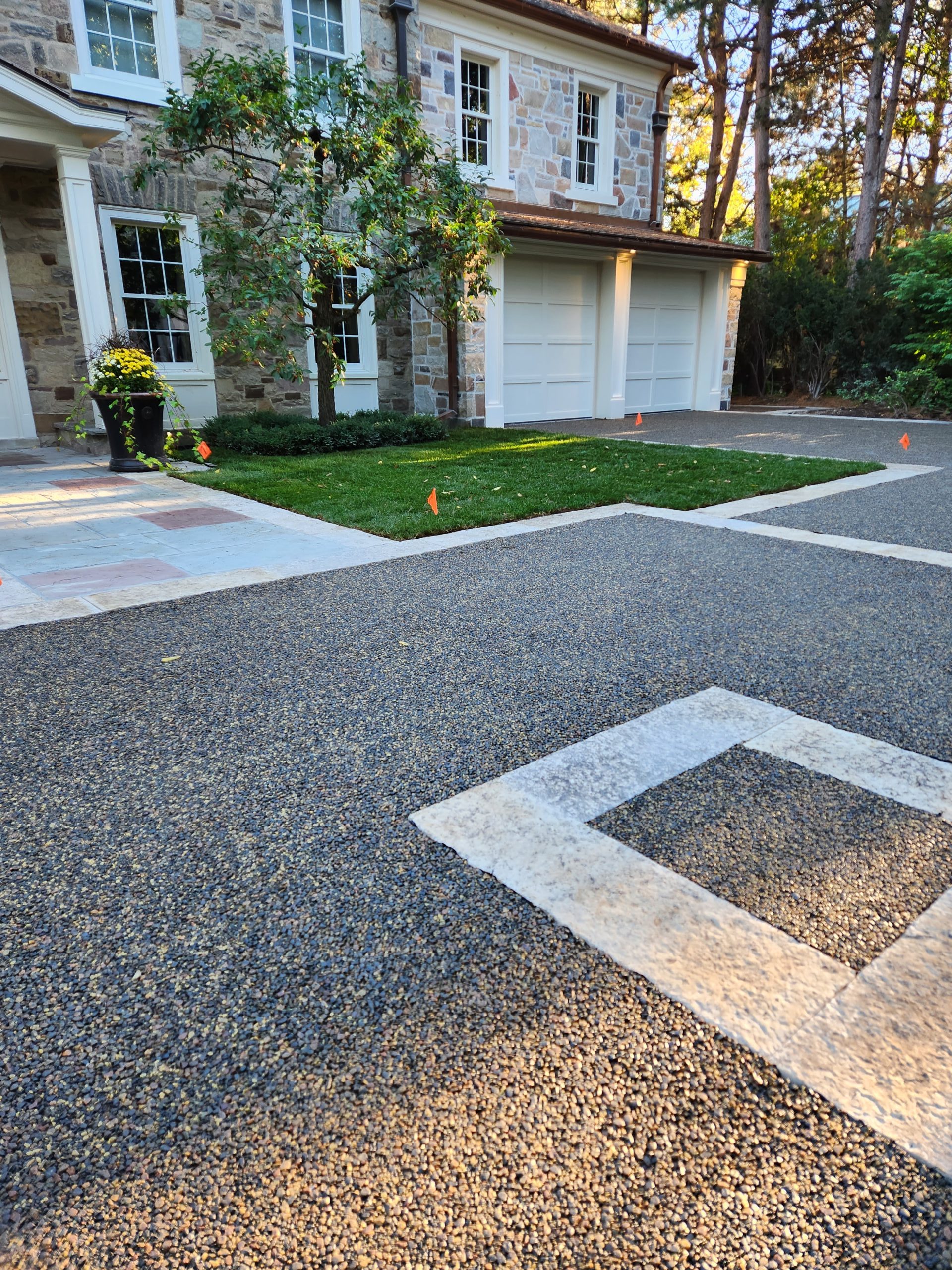What is a permeable parking pad, and how does it differ from a conventional driveway?
A permeable parking pad is a surface that permits water to pass through, reducing runoff and minimizing environmental impact. Unlike traditional driveways made of waterproof materials like asphalt or concrete, permeable pads use porous materials for water infiltration. This makes them an eco-friendly option, helping to manage stormwater runoff and reduce strain on the sewer system.
What factors cause problems for Toronto homeowners with driveways? How can permeable parking pads help?
Toronto homeowners often encounter issues related to stormwater management and environmental degradation due to conventional driveway surfaces. Impermeable driveways contribute to stormwater runoff, which can overwhelm the city’s sewer system during heavy rainfall, leading to flooding and water pollution. Permeable parking pads offer a solution by allowing rainwater to permeate the surface and infiltrate the soil, reducing runoff and minimizing the risk of flooding. This sustainable approach to driveway design helps alleviate strain on municipal infrastructure and promotes environmental stewardship.
Parking pads in Toronto are valuable, particularly for residential properties lacking garages or driveways, which require residents to acquire on-street parking permits. Consequently, installing front yard parking pads enhances convenience and boosts property value, with licensed pads estimated to increase a property’s worth by approximately 3%.
What are the large-scale effects of driveways on a city like Toronto? How can parking pads change this?
Driveways, particularly those made of impermeable materials, can have significant impacts on urban environments like Toronto. The increase in the number of impermeable surfaces leads to accelerated stormwater drainage, a situation that may cause floods, destruction, or contamination of water. Additionally, conventional driveways exacerbate the urban heat island effect by absorbing and retaining heat, further exacerbating temperature extremes in densely populated areas. Permeable parking pads offer a viable solution to these challenges by allowing rainwater to infiltrate the soil, reducing runoff, and helping to mitigate the adverse effects of urbanization on the local ecosystem. By implementing permeable parking pads, cities like Toronto can promote sustainable development practices and enhance resilience to climate change impacts.
However, the City of Toronto has expressed concerns about the environmental repercussions associated with conventional front yard parking pads, primarily related to stormwater runoff. The prevalence of hard, non-porous surfaces exacerbates the issue, leading to an influx of water into the stormwater system during heavy rainfall. This inundation can overwhelm the system, resulting in flooded basements and compromised water quality in local water bodies like Lake Ontario. To mitigate these challenges, the City requires that any proposed front yard parking pads be paved with permeable materials.
Permeable parking pads offer a sustainable solution to the environmental concerns posed by conventional driveways. By utilizing permeable paving materials like DreamPave, these pads allow rainwater to infiltrate the soil rather than contributing to stormwater runoff. DreamPave’s permeable sub-base facilitates water drainage up to 30 cm below the surface, significantly reducing the strain on the sewer system and minimizing environmental impact.
Adopting permeable parking pads aligns with the City of Toronto’s efforts to address stormwater management issues and promotes sustainable urban development. As evidenced by a Toronto Star article highlighting a net-zero runoff property, permeable surfaces like DreamPave offer an eco-friendly alternative for homeowners seeking front yard parking solutions. However, it’s important to note that eligibility for front yard parking permits may vary depending on the specific location within the City.
Conclusion
Permeable parking pads represent a significant step towards mitigating the environmental impact of urban development in Toronto. As homeowners consider options for front yard parking, solutions like DreamPave pave the way for sustainable, eco-friendly practices that benefit individuals and the broader community. For those interested in exploring front-yard parking options further, contacting the City of Toronto is a crucial next step in understanding eligibility and requirements.
